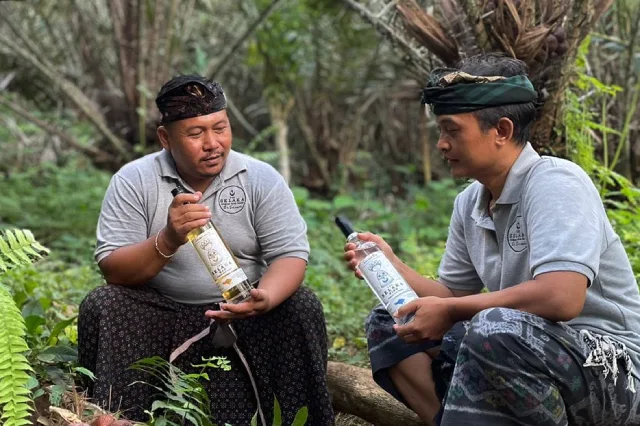Things to Do in Bali
Is Bali a Safe Holiday Destination?
Bali is generally regarded as a very safe travel destination. Yet, like everywhere in the world, where there is light, there is shadow, where there are tourists there are scammers and where there is party, there are people who misbehave and put themselves and others in danger.
By staying vigilant and following safety tips, tourists can enjoy a secure and memorable experience in Bali.
Below you find some of the Tourist Traps, Bali Scams, risks and hazards you should be aware of.
Safety Hazards When Traveling in Bali
Health Hazards
Food and Water Safety:
- Bali Belly (Traveler’s Diarrhea): Often caused by consuming contaminated food or water. Stick to bottled water and be cautious with street food. Ensure that the food you eat is prepared in clean conditions. Avoid raw or undercooked foods. More info on Bali Belly
Mosquito-Borne Diseases:
- Dengue Fever: Common in tropical regions like Bali. Protect yourself with insect repellent, long sleeves, and mosquito nets. More info on Dengue Fever
- Malaria: Very very rare in Bali but can be present in some rural and remote areas.
Dangerous Animals & Animal Bites:
- Rabies: Bali has a significant number of stray dogs and monkeys, some of which may carry rabies. Avoid contact with animals and seek immediate medical attention if bitten.
- Bali is home to several poisonous snakes. Although encounters are very rare in Bali, it is helpful to look at the list of poisonous snakes at least once. Snakes in Bali
- There are no dangerous spiders in Bali
Sun Exposure:
- Sunburn and Heatstroke: The tropical sun in Bali can be very strong. Use sunscreen, wear protective clothing, and stay hydrated.
Drug Use:
- Strict Laws: Bali has very strict drug laws, with severe penalties for possession and use, including small amounts. Avoid taking any drugs.
Prostitution:
- Legal Risks: Engaging in prostitution is illegal in Bali and can result in severe penalties.
Alcohol Consumption:
- Bad Alcohol: Be cautious of consuming local or home-brewed spirits, especially in very cheap establishments and locally organized beach parties, as they might be stretched with methanol or other harmful substances.
- Drink Spiking: In some shady nightclubs, girls could find unwanted substances in their drinks. Always watch your drink and never leave it unattended.
Bali Scams & Theft
- ATM Scams: Use ATMs located in banks or reputable locations. Be aware of skimming devices and shield your PIN.
- Overcharging: Tourists may be overcharged for services, especially in markets and by some drivers. Agree on prices beforehand or use metered taxis and check prices with other travelers
- Drivers Taking You to Overpriced Places: Some drivers may take you to restaurants, shops, or attractions that pay them a commission, leading to higher prices.
- Currency Exchange Scams: Use official exchange counters or banks. Be wary of street vendors offering favorable rates. They often are real magicians when it comes to counting the money in front of you.
- Pickpocketing: in crowded areas. It’s a bit rare, but can happen. Keep your valuables secure and be vigilant in busy tourist spots. Also while driving a scooter at night, better to keep your purse close to your body or in the scooter boot.
- Breaking into Motorbike Boots: Avoid leaving valuables in motorbike boots, as they can be easily broken into.
- Unreliable Taxis & Drivers: Some taxis may not use meters or take longer routes. Use reputable taxi service BLUEBIRDS or ride-hailing apps like GoJek or Grab. Transportation Guide
Motorbike Accidents – chaos, pain and drama
- Renting motorbikes is popular but can be dangerous due to traffic conditions and road quality. However, most accidents happen because of tourists driving recklessly, overconfident and under-qualified”, or while driving under the influence of alcohol and drugs. Always wear a helmet and ensure you have the proper driving license. Driving in Bali Tips
- Even if you are a great driver, others might be intoxicated or simply stupid and reckless and will endanger not just themselves. Particularly at night near the top nightlife spots in Canggu, Seminyak, Uluwatu you will find plenty of motorbike and scooter drivers that should not drive a bike. Many many, and sometimes fatal accidents happen in these areas regularly.
Visa & Tax Scams:
- Tourist Tax Scammers run websites and even advertise in Google and Instagram. Bali Tourist Tax
- Tourist Visa Scammers run websites and also manage to advertise in Google and Instagram Visa Regulations & Application Services
Use official government websites & reliable service providers that we mention in our FAQs. Avoid offers from unofficial sources or unknown websites.
Sea & Beach Safety:
- Rip tides and strong Currents: Some beaches have strong rip currents. Swim in lifeguarded areas and pay attention to warning flags and signs.
- Sea Creatures: Be cautious of jellyfish and sea urchins, which can cause painful stings or injuries.
- Don’t feel adventurous and go for a night swim, particularly not when you had a few drinks. It is simply very very dangerous, due to the currents and the unpredictable waves.























